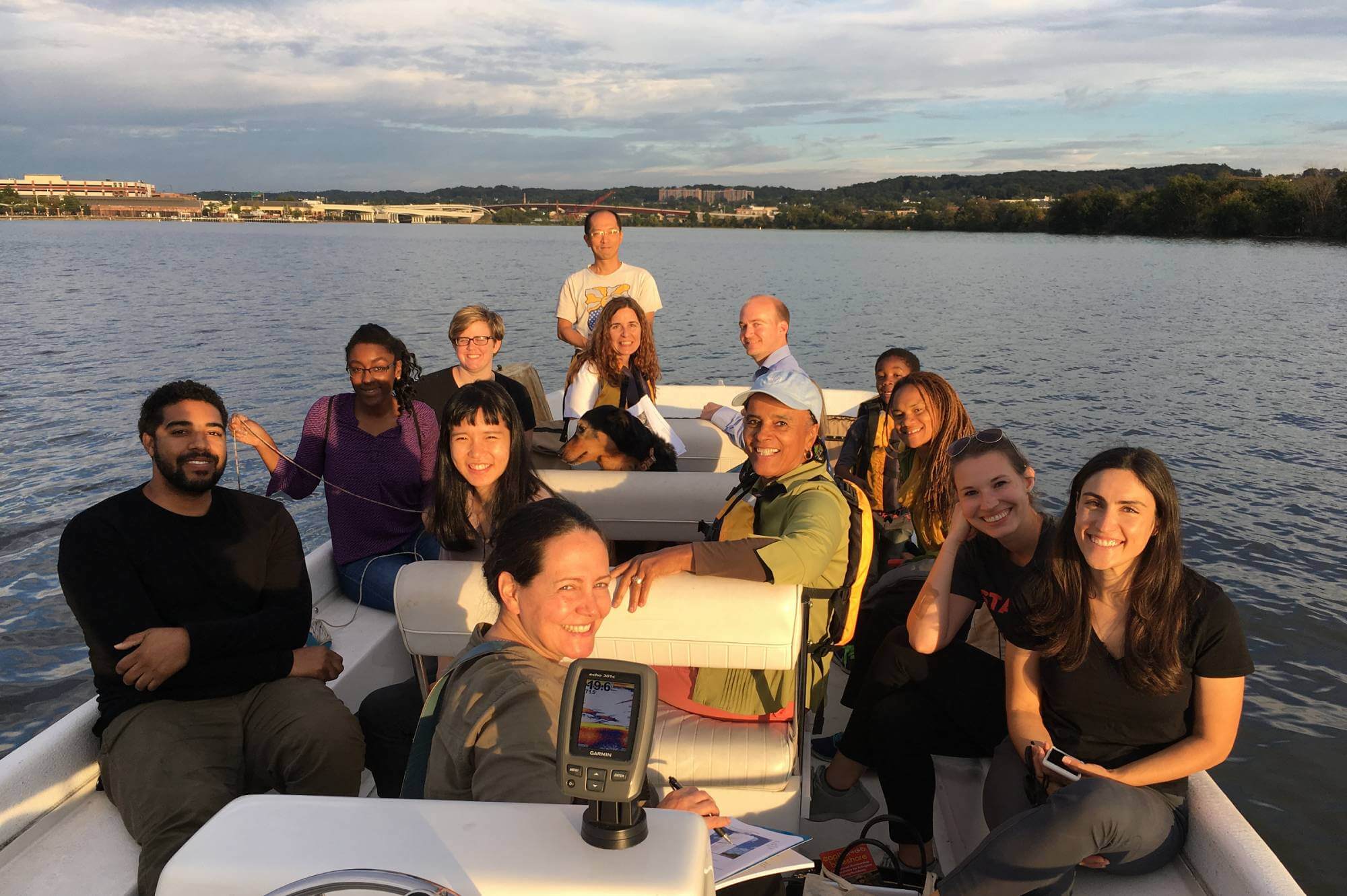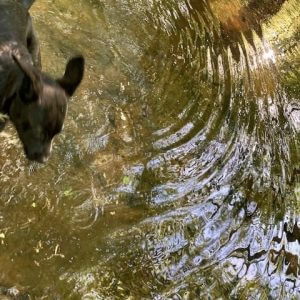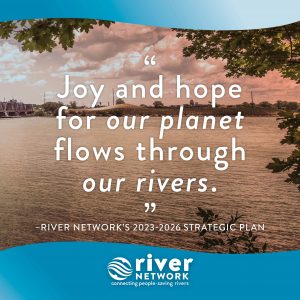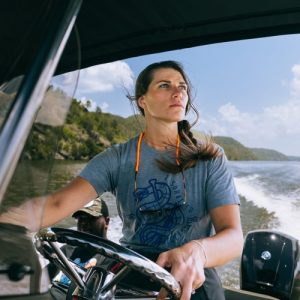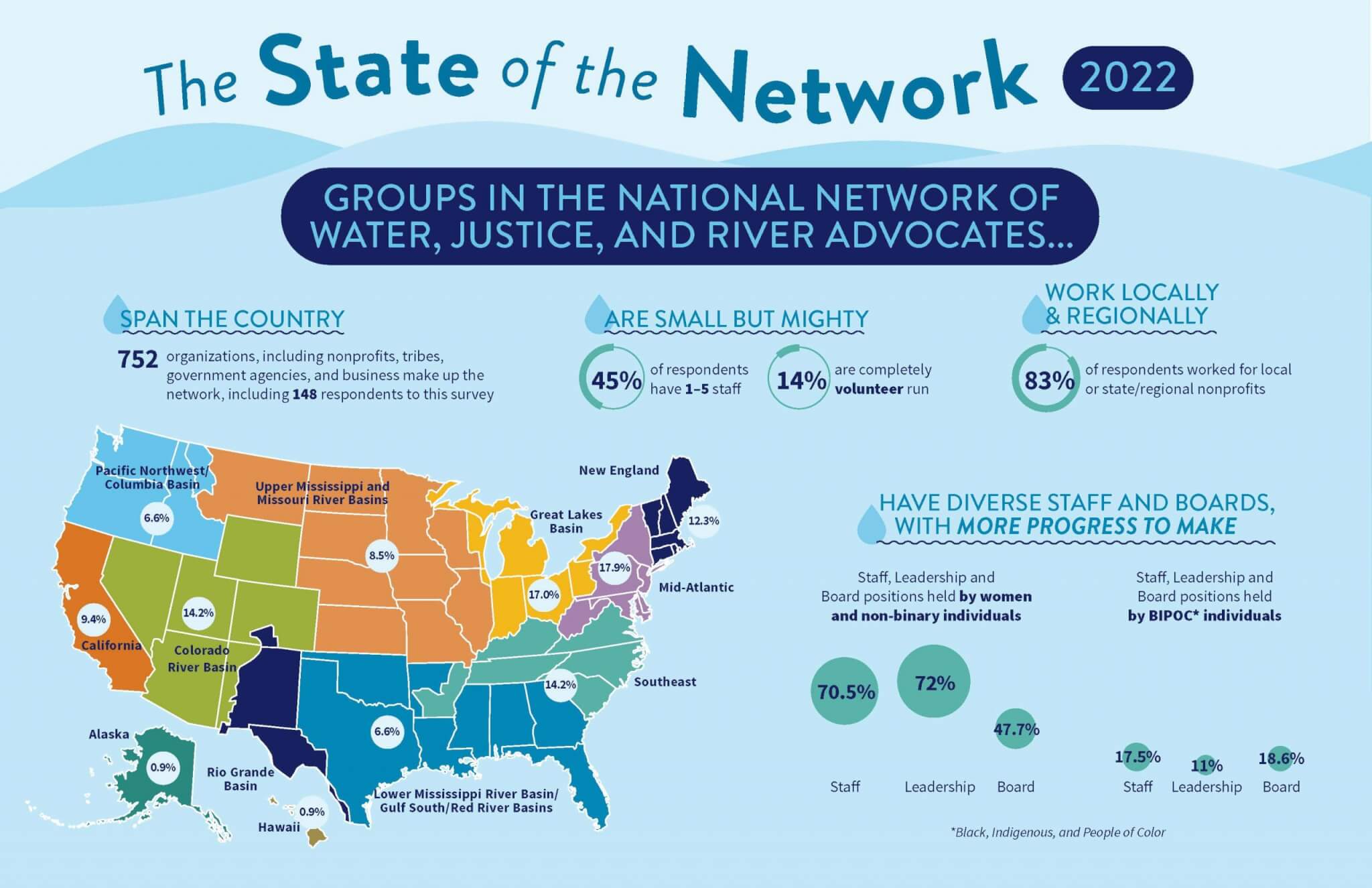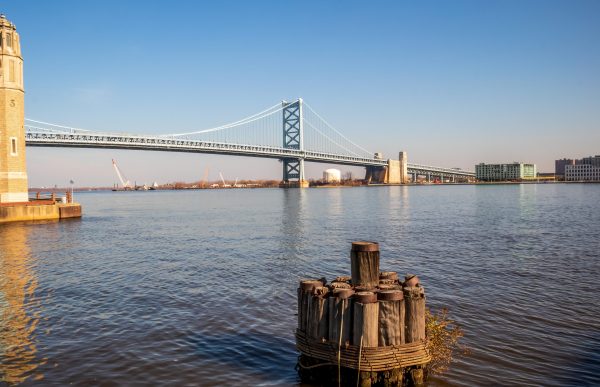River Voices: February 2023

Welcome to the February 2023 edition of River Voices. This month, meet the five communities we’re collaborating with to support leadership development for equitable climate resilience. Plus, what we’re reading for Black History Month.
Urban and rural communities alike are bearing the burdens of flooding, water scarcity, and droughts, with impacts experienced dispropor- tionately by marginalized populations. Critical to advancing equitable solutions is elevating the expertise of community partners. Using our Fostering Community Leadership toolkit, River Network works with organizations to catalyze community members stepping into leadership roles. The five leadership development programs we’ve collaborated on are diverse in their approaches; however, they generate similar positive outcomes for communities.
“Communities of Color are most impacted by climate change/severe weather. We live in areas with low tree canopy coverage, lots of impervious surfaces, limited access to green space, and poor air and water quality… Defensores de la Cuenca is working to reverse this through our holistic and inclusive programs.”
–Abel Olivo, Defensores de la Cuenca
“Our new dog, Juno, is a water dog. She spent a number of weeks tentatively sniffing the water and delicately dipping her paws before one day bounding in with undiluted glee. Walking along our local creek and watching Juno bound in and out of the water makes me smile and lifts my spirits.”
In our latest blog post, hear from Katherine Baer on the ways joy and hope are infused into our Strategic Plan and see photos from our staff that represent joy for them.
Building upon our three decades supporting community members and organizations working on the ground to protect waters across the US, River Network developed a refreshed Strategic Plan for 2023-2026 to focus our efforts and clearly define our future for collective impact through a powerful, inclusive network.
This network connects our rural and urban areas, supports local and regional groups, and represents our immense collective power.
“Water organizations could really benefit from the type of programming that River Network offers about how to sustain an organization and be a good, effective leader. It’s not just about fighting pollution… we need effective teams, long-range strategies, and succession planning too.”
Justinn is Executive Director & Staff Riverkeeper at Coosa Riverkeeper, and recently collaborated with River Network and Waterkeepers Alabama on their strategic plan.
We’re excited to share the results of the inaugural State of the Network Survey! Thank you to the 148 organizations who responded to the survey, which asked about organizational capacity, achievements, challenges, and needs. These results help us all: understand the collective reach and impact of the network; track and share the demographic trends of staff, leadership-level staff, and boards of groups working on water issues and identify the biggest challenges groups face in addressing justice, equity, diversity, and inclusion (JEDI); and assess the most pressing needs of organizations working on water. We are committed to following up on the areas of most needed foundational support that participants identified – look for additional trainings, resources, and opportunities to be rolled out throughout the year.
Mapping can be a great tool to visualize complex data sets across basins, states, and other boundaries. In the Delaware River Basin, River Network created a story map to visualize the water quality health of each basin state side by side. Comparing and contrasting data and assessments helps us learn from each of our basin states, how we can work together to realize our collective impact and what are the most meaningful solutions for a fully fishable, swimmable Delaware River. Mapping water quality data can also help in the development of boating or stream-side education programs, restoration projects, land conservation locations, state and local advocacy, and much more. We also included EPA’s EJScreen in our story map to help users identify priority areas where environmental justice indicators and water quality concerns overlap.
America the Beautiful for All Coalition Has Launched
The America the Beautiful for All Coalition consists of 150 organizations working toward President Biden’s America the Beautiful Initiative and goal of protecting 30 percent of U.S. lands and waters by the year 2030.
This is the largest and most diverse coalition ever assembled for the most ambitious conservation goal ever set in the United States and River Network is proud to be a member.
Keeping the Chattahoochee: New Book Coming in July
Sally Sierer Bethea was one of the first women in America to become a “riverkeeper”—a vocal defender of a specific waterway who holds polluters accountable. In Keeping the Chattahoochee, publishing July 15, 2023, she tells stories that range from joyous and funny to frustrating—even alarming—to illustrate what it takes to save an endangered river. Her tales are triggered by the regular walks she takes through a forest to the Chattahoochee.
Water Affordability Analyses for Six Michigan Communities
We the People of Detroit kicked off 2023 by continuing the work of community coalition building and providing their community with resources that inform, train, and mobilize the citizens of Detroit and beyond to improve their quality of life. If you haven’t yet, give their new report Water Affordability Analyses for Six Michigan Communities, which details how we can achieve true water affordability in our state, a read!
Emergence Magazine’s Seeds of Radical Renewal Workshop
What does effective leadership look like as our ecological and cultural landscapes rapidly shift? This ten-part leadership course is for emerging leaders who want to deepen their skills in building and co-creating spaces of renewal, reciprocity, and reverence. Each session will provide space for facilitated discussion, personal reflections through written prompts, group sharing, storytelling, and one-on-one mentorship sessions.
- 🎧 The Joy Report – Intersectional Environmentalist’s podcast series is dedicated to sharing stories about climate solutions and environmental justice grounded in intersectionality, optimism, and joy. Host Arielle King covers a breadth of topics and expertly weaves in historical context.
- 📖 Nature Swagger – Rue Mapp’s new book features essays from the Outdoor Afro founder that connect the rich history of Black involvement in the outdoors, activism, and conservation, gorgeous photographs, awe-inspiring stories, and Black history. It was also recently featured on the Joy Trip Reading Project.
- 📖 The Price of the Ticket – dig into this essential James Baldwin collection with essays that “uncover what it means to live in a racist American society.”
- 📺 The 1619 Project – This six-part series is an expansion of “The 1619 Project” created by Pulitzer Prize-winning journalist Nikole Hannah-Jones and “seeks to reframe the country’s history by placing the consequences of slavery and the contributions of Black Americans at the very center of our national narrative.”
- 📺 Descendant – A powerful documentary in which “descendants of the enslaved Africans on an illegal ship that arrived in Alabama in 1860 seek justice and healing when the craft’s remains are discovered.”


